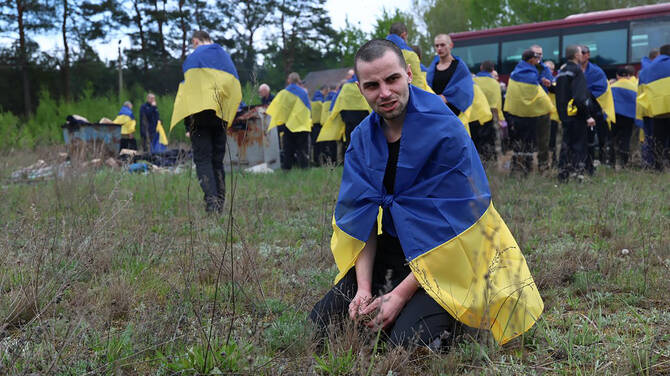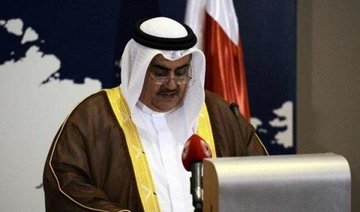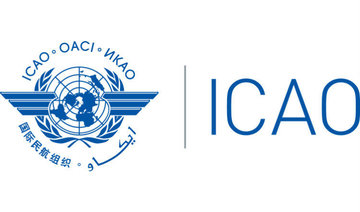JEDDAH: A report by a leading think-tank has raised questions about Qatar’s suitability to host the 2022 World Cup.
The report, prepared by the Saudi American Public Relation Affairs Committee (SAPRAC), documents in detail “how a corrupt state is sponsoring terrorism and sports at the same time.”
The report quotes senior US officials as saying Qatar is “the most two-faced nation in the world, backing the US-led coalition against the militants of the Islamic State (Daesh) while providing a permissive environment.”
SAPRAC founder Salman Al-Ansari told Arab News on Tuesday that the analysis was conducted to “highlight the very dark side of Qatar.”
Using “facts and evidence,” the report “sheds light on Qatar’s terrorism, corruption and mistreatment of its cheap labor,” he said.
“Therefore, FIFA (football’s international governing body) will surely open a comprehensive investigation into this tiny country with dual agendas.”
Several countries in the region, led by Saudi Arabia, have recently taken action against Doha, severing ties and saying it supports terrorist groups such as Daesh and Al-Qaeda.
Qatar’s World Cup bid came under investigation from the FBI and Swiss authorities “for money laundering and racketeering, leading to the resignation of FIFA President Sepp Blatter,” said the report.
“It is now an explicit fact that the money used in funding and enabling top terrorist groups around the world, is the same money used to buy European football teams and host the 2022 FIFA World Cup,” it added.
“The FIFA Disciplinary Committee must conclude that Qatar has committed a serious breach of FIFA ethics and rules, and that its continued support and promotion of internationally recognized terrorist groups is against the Federation’s code of ethics, and all the nobility and integrity that the sport stands for.”
Among the reasons listed by SAPRAC for why Qatar is unfit to host the World Cup are concerns raised during the bidding process, including a lack of proper infrastructure and an excessively hot climate.
The report also cites the indictment of Mohammed bin Hammam, former president of the Asian Football Federation and a key player in the World Cup bid, who was banned for life from anything related to football due to bribery allegations.
Other reasons listed include continued scrutiny by the US Department of Justice and Swiss authorities of Qatar’s influence on football’s most important organizations; and the death of more than 1,200 construction workers while building stadiums for the 2022 World Cup.
The report said World Cup organizers, officials, team members and fans will face travel difficulties and restrictions due to the air blockade by neighboring countries.
Shipments of building materials used for stadiums and other projects have faltered due to the land and seaport ban, it added.
The report quoted German Football Association President Reinhard Grindel as saying: “The football community worldwide should agree that major tournaments should not be played in countries that actively support terror.”
The deputy speaker of the German Parliament asked: “How is the World Cup granted to a state that sponsors terrorism around the world?”
FIFA urged to drop ‘two-faced’ Qatar as World Cup host
FIFA urged to drop ‘two-faced’ Qatar as World Cup host

Gaza aid dries up as Israeli blockade enters a third month

- The current blockade has lasted longer than any previous Israeli halt in aid to Gaza since the Israel-Hamas war began
JERUSALEM: Israel has blockaded all entrances to the Gaza Strip since March.
While pummeling the strip with airstrikes, it has banned any food, water, shelter or medication from being trucked into the Palestinian territory, where the UN says the vast majority of the population is reliant on humanitarian aid to survive. Israel says the blockade aims to pressure Hamas to release the hostages it still holds. Of the 59 captives remaining in Gaza, 21 are believed to still be alive, US President Donald Trump said Tuesday, revealing that three had died.
Here’s a look at the humanitarian crisis spiraling in Gaza, through key statistics and charts:
The current blockade has lasted longer than any previous Israeli halt in aid to Gaza since the Israel-Hamas war began. Hamas attacked Israel on Oct. 7, 2023 and Israel froze aid to Gaza for two weeks.
Now, Gaza is entering its third month without supplies. Thousands of trucks queue along the border of the territory, waiting to be let in. Community kitchens are closing down and bakeries are running out of fuel. Families spend hours waiting in line for small portions of rice.
In their desperation, Palestinians have begun scavenging warehouses and stores for anything left. Aid groups report a rise in looting incidents over the last week. At least some have been looted by armed groups.
Meanwhile, Israel is moving forward with plans to seize all of Gaza and to stay in the Palestinian territory for an unspecified amount of time. It says it will expand operations there, defying calls for an immediate renewal of a ceasefire from families whose relatives are still held hostage in Gaza.
Israel’s offensive has displaced more than 90 percent of Gaza’s population and, Palestinian health officials say, killed more than 52,000 people, many of them women and children. Palestinian officials do not distinguish between combatants and civilians in their count.
UAE mediates deal for release of further 410 Russian and Ukrainian prisoners of war

- It is the 15th in a series of UAE-mediated prisoner-swap agreements that have resulted in the release of 4,181 captives in total
LONDON: The UAE has mediated the 15th in a series of agreements between Russia and Ukraine for the release of prisoners of war, as part of its ongoing diplomatic efforts to help resolve the conflict.
Under the latest prisoner-swap deal, 205 Ukrainians and 205 Russians were freed on Tuesday, the Emirates News Agency reported. The Emirati Ministry of Foreign Affairs said a total of 4,181 Russian and Ukrainian captives have now been released as a result of its mediation efforts, the continuing success of which reflects the level of trust Kyiv and Moscow have in the UAE.
The UAE remains determined to find a peaceful resolution to the war in Ukraine, which began in February 2022, and to help ease the humanitarian suffering it has caused, the ministry added.
Lebanon says one killed in Israeli strike on south

- The ministry said in a statement that the “Israeli enemy” strike on Kfar Rumman killed one person and wounded three others
- Israel has continued to launch regular strikes in Lebanon despite the November 27 truce
BEIRUT: Lebanon’s health ministry said an Israeli strike Tuesday on a car in the country’s south killed one person, the latest attack despite a fragile ceasefire between Hezbollah militants and Israel.
The ministry said in a statement that the “Israeli enemy” strike on Kfar Rumman killed one person and wounded three others.
Lebanon’s state-run National News Agency said the car was hit with a “guided missile” on the road linking the town of Kfar Rumman with the nearby city of Nabatieh.
There was no immediate comment from the Israeli military.
Israel has continued to launch regular strikes in Lebanon despite the November 27 truce which sought to halt more than a year of hostilities with Hezbollah including two months of all-out war, with a heavy Israeli bombing campaign and ground incursion.
Under the deal, Hezbollah was to pull its fighters north of Lebanon’s Litani River, some 30 kilometers (20 miles) from the Israeli border, and dismantle any remaining military infrastructure to its south.
Israel was to withdraw all its forces from south Lebanon, but it has kept troops in five positions that it deems “strategic.”
A Lebanese security source told AFP that Hezbollah had withdrawn fighters from south of the Litani and dismantled most of its military infrastructure in that area.
Lebanon says it has respected its commitments and has called on the international community to pressure Israel to end its attacks and withdraw from the five border positions.
Huge dust storm sweeps into Iran, affecting millions

- State television urged people to remain inside and wear face masks if they had to go out
TEHRAN: Iranian authorities ordered schools and offices closed in seven western provinces Tuesday as a dust storm swept in from neighboring Iraq, with around 13 million people told to stay indoors.
Khuzestan, Kermanshah, Ilam and Kurdistan provinces were all affected, and state television cited local officials as blaming the closures on high levels of accumulated dust.
Government and private offices also shut in several provinces including Kermanshah and Ilam, as well as Khuzestan in the southwest.
Zanjan in the northeast and Bushehr in the south were also hit.
Bushehr, nearly 1,100 km south of Tehran, was given an Air Quality Index of 108 on Tuesday, rated “poor for sensitive groups.”
That figure is more than four times higher than the concentration of air microparticles deemed acceptable by the World Health Organization.
Iran’s meteorological authorities said the conditions were caused by “the movement of a large mass of dust from Iraq toward western Iran.”
State television reported low visibility in some areas and urged people to remain inside and wear face masks if they had to go out.
Last month, a similar dust storm in Iraq grounded flights and sent thousands of people to hospital with breathing problems.
On Monday, Iran’s IRNA state news agency said more than 240 people in Khuzestan province had been treated for respiratory issues because of the dust.
A spokesperson for the emergency services also told Tasnim news agency on Tuesday that nine people had died as a result of storms in Iran over the past seven days, ending on Monday.
“Four of the deaths were caused by strong winds and falling objects, and five were caused by lightning strikes,” it added.
Tunisia puts more opposition figures on mass trial

- The 'conspiracy against state security II' involved 22 defendants, including 83-year-old Ennahdha party leader Rached Ghannouch
- The majority of the defendants are being tried in absentia, having fled the country
TUNIS: A new trial of nearly two dozen Tunisian opposition figures accused of plotting against the state opened on Tuesday, weeks after a separate mass trial jailed nearly 40 defendants on similar charges.
The latest trial — known as the “conspiracy against state security II” — involved 22 defendants, including 83-year-old Islamist-inspired Ennahdha party leader Rached Ghannouchi, currently jailed in another case.
Youssef Chahed, a former prime minister, and Nadia Akacha, once the head of the presidential office, were also among the defendants, according to court documents.
The defendants were accused of terror-related charges, incitement to murder, and “plotting against state internal security,” among other charges, according to a court document.
The majority of the defendants are being tried in absentia, having fled the country, lawyer Samir Dilou said.
Ghannouchi was already sentenced in early February to 22 years in prison — also for plotting against state security in a different case.
He had been the speaker of parliament when President Kais Saied staged a sweeping power grab in 2021.
In this case, Ghannouchi as well as other Ennahdha officials stand accused of setting up a “secret security apparatus” in service of the party, which had dominated Tunisia’s post-revolution politics.
Tunisia had emerged as the Arab world’s only democracy following the ouster of longtime ruler Zine El Abidine Ben Ali in 2011, after it kicked off the Arab Spring uprisings.
Tuesday’s hearing was conducted remotely with only four defendants attending virtually, according to lawyers.
Last month’s similar trial had drawn criticism from the United Nations, which said it was “marred by violations of fair trial and due process rights.”
But Saied dismissed the “comments and statements by foreign parties” as “blatant interference in Tunisia’s internal affairs.”
In a statement on Monday, Tunisia’s main opposition coalition, the National Salvation Front (FSN), called for “an end to sham and unfair trials,” demanding “the release of all political prisoners.”





















